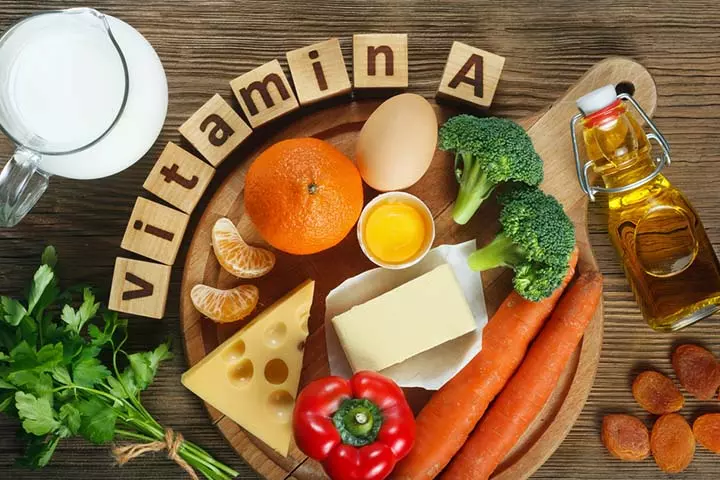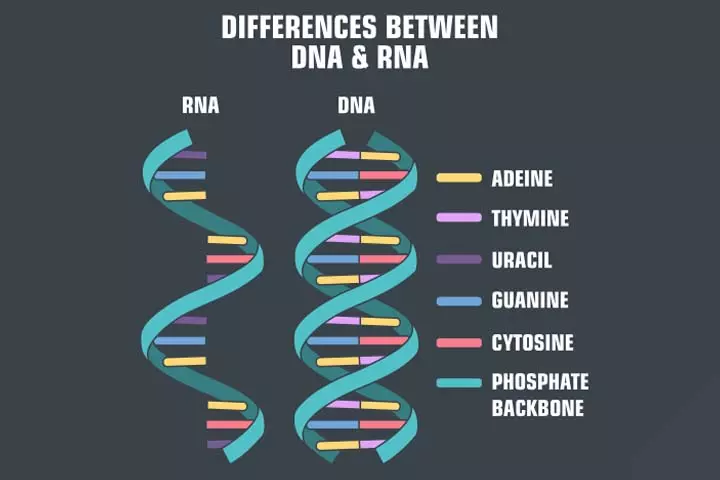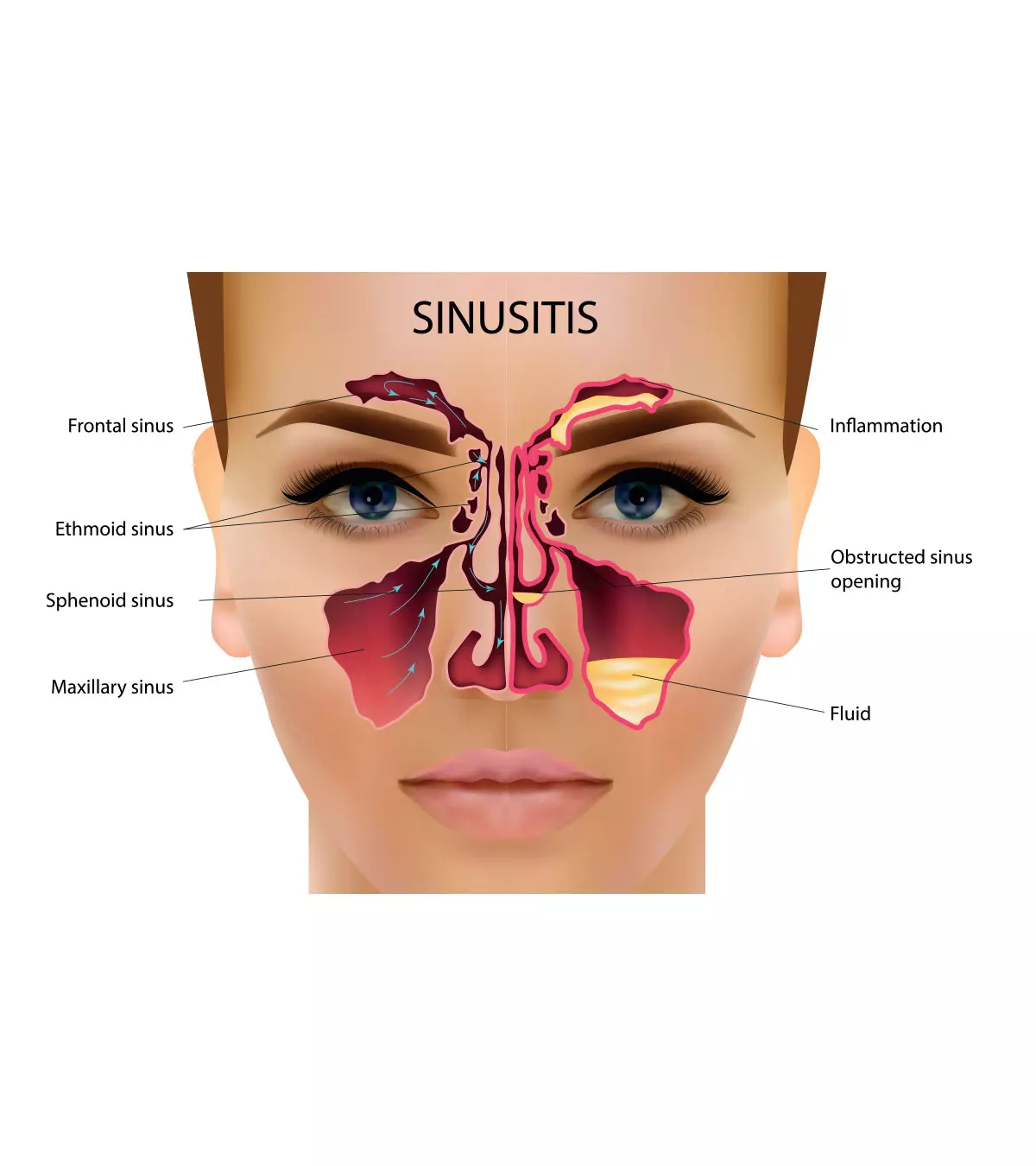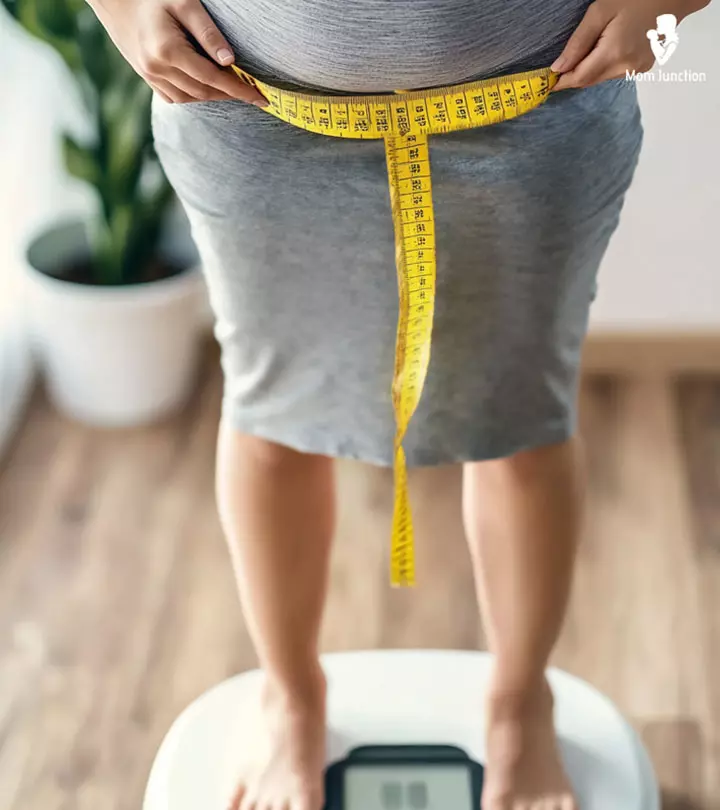
Image: iStock
Newborns are recommended to have only breast milk for at least the first six months. Experts suggest that the mothers’ milk includes essential vitamins for babies to meet their daily requirements. Continue reading this post as we discuss the importance of vitamins for your baby, the vitamins a breastfeeding mother requires, and the health benefits of these vitamins for the infant.

Key Pointers
- Breast milk is crucial for the growth and development of babies and provides essential vitamins.
- Vitamin A in breast milk supports vision development, while Vitamin C boosts immunity.
- Vitamin D in breast milk strengthens bones and immunity, and Vitamin K aids blood clotting.
- Breast milk’s Vitamin E supports muscle building and enhances cell-mediated immunity.
- B complex vitamins in breast milk have distinct roles in metabolism, DNA formation, and cell signaling.
- A balanced diet and adequate supplementation help breastfeeding mothers obtain these beneficial vitamins.
Why Are Vitamins Important For Your Baby?

Vitamins are vital for a baby’s growth and are a part of the baby’s daily nutritional requirement (1). Without vitamins, a baby runs the risk of deficiency diseases that can stunt his growth and delay developmental milestones.
Breast milk is the only source of vitamins to the baby during the first few months. Even after six months, when the baby starts eating solid food, breast milk can still be a significant source of vitamins.
What Essential Vitamins Does A Breastfeeding Infant Need?
All the vitamins play a crucial role in the healthy growth of an infant. The table lists the food sources of each vitamin and their recommended daily allowance (RDA) for a lactating mother.
| Vitamin | RDA | Food sources |
|---|---|---|
| A | 1,300μg/day (2) | Fish, eggs, liver, sweet potato, carrots, pumpkins, spinach, cheese, apricots, mangoes |
| B1 (Thiamin) | 1.4mg/day | Whole grains especially wheat and brown rice; meat, nuts, fish, soy, egg, legumes especially pulses, plant seeds, seed oils, green peas |
| B12 (Cobalamin) | 2.8μg/day | Fish, eggs, meat, shellfish, milk and dairy products. Note: Vitamin B12 is only found in animal food sources. |
| B2 (Riboflavin) | 1.6mg/day | Whole milk, whole wheat, brown rice, almonds, egg, spinach, soybeans, broccoli, meat, mushrooms |
| B3 (Niacin) | 17mg/day | Poultry meat, sesame seeds, beetroots, fish, sunflower seeds, peanuts, lentils, Lima beans, milk, eggs |
| B5 (Pantothenic acid) | 7 mg/day | Legumes including pulses, cauliflower, meat, sunflower seeds, fish, avocado, sweet potato, eggs, cheese, lentils |
| B6 (Pyridoxine) | 2 mg/day | Fish, fortified cereal, meat, lentils, plums, banana, lentils, carrots, spinach, potato |
| B9 (Folic acid/Folate) | 500 μg/day | Lentils, spinach, asparagus, turnip, beetroot, rice, orange, avocado, milk, wheat. Note: Vitamin B9 is found in all green leafy vegetables and root vegetables. |
| C (Ascorbic acid) | 120 mg/day | Guava, Indian gooseberry (Amla), kiwifruit, blackcurrant, orange, strawberries, tomato, broccoli, potato, spinach |
| Vitamin D | 15 μg/day | All fatty fish (sardines, tuna, mackerel, and salmon), egg yolk; vitamin D fortified infant formula, milk cereal & bread; vitamin D supplements |
| Vitamin E | 19 mg/day | Sunflower oil, grapeseed oil, safflower oil, soybean oil, olive oil, almonds, hazelnuts, peanuts, avocado, spinach |
| Vitamin H/Vitamin B7 (Biotin) | 35 μg/day | Meat, eggs, cheese, whole wheat, fish, cauliflower, avocado, raspberries, legumes, almost all nuts including walnut, peanut, and almonds |
| Vitamin K | 90 μg/day | Spinach, kale, broccoli, parsley, soybean oil, olive oil, cabbage, green lettuce, cauliflower, grapes |
mg=milligrams; μg = micrograms
Below, we tell you how each vitamin benefits the infant.
Health benefits:
1. Vitamin A:

- Vital for the development of vision, which includes both color and night vision.
- Helps in healthy formation of tissues, including skin and hair.
- Keeps the immune system healthy, which in turn provides protection against several illnesses (3).
2. Vitamin B1 (Thiamin)
- Thiamin is essential for the formation of the compound called adenosine triphosphate (ATP) that the body’s cells use as a source of energy (4).
- Several internal metabolic processes of the cells depend on vitamin B1 (5).
- Helps in the formation of healthy brain neuronsiNerve cells , including those that are responsible for cognitive functionsiThe brain’s ability to acquire, process, store, and retrieve information and memory formation.
3. Vitamin B12 (Cobalamin)

- Helps the body form new proteins that act as building blocks of the body (6). These proteins, in turn, help the baby grow.
- Vital for the good health of neurons (nerve cells). Healthy nerve cells eventually help in proper cognitive development.
- Vitamin B12 plays an essential role in the formation of DNA and RNA, which are the genetic materials of the cells.
 Health fact
Health fact4. Vitamin B2 (Riboflavin)
- Riboflavin plays a crucial role in ensuring absorption of iron by the body. A healthy intake of vitamin B2 helps the infant maintain optimum hemoglobin levels (7).
- Vitamin B2 works as an antioxidant that either minimizes or prevents cell damage thus ensuring cell health.
- It is vital for the healthy production of red blood cells, which in turn can help reduce the chances of anemia in infants.
5. Vitamin B3 (Niacin)
- Vitamin B3 is essential for keeping the nervous system healthy.
- Niacin helps in the production of different glands, such as the adrenal glandiTriangular-shaped glands on kidneys that are responsible for the secretion of a variety of hormones , and other stress-related hormones in the body.
- Vitamin B3 helps the body reduce inflammation, which can be of significant benefit during infections and diseases.
6. Vitamin B5 (Pantothenic acid)
- Pantothenic acid is vital for the health of the red blood cells and different glands of the body.
- Keeps the digestive system healthy and helps the body to use vitamins, especially riboflavin.
- Vitamin B5 is known to help the body heal wounds faster and better, especially post surgery (8).
7. Vitamin B6 (Pyridoxine)

- Helps the body make neurotransmitters, which transmit signals from one neuron to another. It eventually helps the baby develop proper reflexes (9).
- Pyridoxine is essential for the development of the brain and spinal cord.
- Vitamin B6 plays a role in the formation of melatonin hormone, which regulates the sleep and wake cycle of the body.
8. Vitamin B9 (Folic acid/Folate)
- Supports the formation of DNA and RNA. It helps cells multiply faster.
- It helps in brain development and functioning as the babies are still learning to think and process information (10).
- Vital for the formation of red blood cells and the absorption of iron by the body (11).
9. Vitamin C (Ascorbic acid)
- Plays a role in the formation of collagen, the protein used to form the skin, hair, and blood vessels.
- Important for the healing of wounds and the general repair of the body’s cells.
- Vitamin C has been shown to stimulate the production of leukocytes that are white blood cells essential to shield the body against pathogens.
10. Vitamin D

- Vitamin D is made by the liver from vitamin D2 or vitamin D3. Vitamin D3 is naturally produced by the skin when exposed to sunlight. Vitamin D2 is made from yeast and is usually available in the vitamin D drops for breastfed babies (12).
- The vitamin plays a role in bone mineralization, making bones become harder through the absorption of calcium and magnesium. Vitamin D is vital for the baby to develop stronger bones and ensure proper nutrient absorption.
- Helps in maintaining the functions of immune system cells, which in turn protect against pathogens.
- Adequate intake of vitamin D has shown to help the body better manage autoimmune diseases like eczemaiA skin condition characterized by dry, itchy, and inflamed skin and Crohn’s diseaseiA chronic condition causing inflammation of the digestive tract leading to abdominal pain, diarrhea, weight loss, and malnutrition (13). These are diseases that are widely noticed even in infants.
Babies need 400 IU/day of vitamin D a day. Sometimes, the mother’s milk may be insufficient to meet this requirement (22). Therefore, Vitamin D is added as a fortification to several foods like juice, cereal, bread, and milk. Vitamin D is also available in the form of over-the-counter supplements.
Bridget Teyler, a mother, birth doula, and childbirth educator, shares her approach to meeting her postpartum vitamin D needs. She explains, “I make an effort to spend 30 minutes under the sun every day, absorbing its rays through my skin. Additionally, I take vitamin D in capsule form. I provide my daughter with vitamin D along with her probiotic. Therefore, my daily routine includes 4000 IU of vitamin D and exposure to sunlight each day (i).”
Note: The body can naturally produce vitamin D on exposure to direct sunlight. However, the quantity of vitamin D in breast milk is never sufficient to meet the baby’s RDA unless the baby gets some sunlight exposure as well. Therefore, experts recommend a vitamin D supplementation of 400 IU/day (10μg/day) for the breastfeeding baby, starting from a few days after birth until the age of 12 months (14).
11. Vitamin E
- Vitamin E is important to keep the muscles healthy and also ensure they have an optimum range of movement (15).
- It strengthens cell-mediated immunity and helps the body fight infections better.
- The body needs vitamin E to make healthy red blood cells.
12. Vitamin H, also known as Vitamin B7 (Biotin)
- Essential to metabolize carbohydrates, amino acids, and fats in the body. These nutrients help the body grow and function normally.
- Infants need vitamin H for healthy skin. Also, adequate intake of vitamin H can help cure some infantile conditions like cradle cap, also known as seborrheic dermatitisiA common skin condition that causes dandruff, scaly patches, and inflammation on the oily parts of the body .
- Biotin is vital for the overall good health of the skin, hair, and nails (16).
13. Vitamin K
- Helps the blood clot. In fact, the “K” in the name of the vitamin comes from its German name “Koagulations vitamin”, which means coagulation vitamin.
- Plays a role in ensuring ideal bone health and density.
- Good for the health of blood vessels and the circulatory system in general.
A healthy and balanced post-pregnancy diet ensures that you get the daily allowance of vitamins. In case you have more questions about vitamins during breastfeeding, read our FAQs section next.
Frequently Asked Questions
1. Can I take multivitamins while breastfeeding?
Yes, you can but only after consulting your doctor. Usually, supplements are not necessary if you follow a balanced, healthy diet. But if you are unsure about your diet, then consult your doctor for vitamin supplement recommendations.
2. Should I take prenatal vitamins while breastfeeding?
Yes, you can. Prenatal vitamins are required by the body during gestation. While the requirements of your body change during the postnatal/postpartum period, experts suggest that you can continue consumption of your prenatal vitamins up to six weeks after postpartum (17). You can consult your doctor about further supplementation after the period.
3. Can I take hair, skin and nail vitamins while breastfeeding?
No. Avoid additional multivitamin supplements for your hair, skin, and nails while breastfeeding. Most such supplements contain large quantities of biotin, a water soluble B vitamin, that, when taken in large quantities, could pass into the breast milk and harm the infant. The prenatal vitamin prescribed or given to you by your doctor will contain a specific and safe quantity of biotin, that wouldn’t affect the breast milk quality. (see 12 vitamin H, otherwise known as Vitamin B7, and it’s important benefits listed above).
4. What is the difference between prenatal and postnatal vitamins?
Prenatal vitamins are dietary supplements suggested to a woman before childbirth (including when a woman is pregnant). In contrast, postnatal vitamins are dietary supplements recommended for women after birth (especially for those who are breastfeeding).
5. Does vitamin D increase milk supply?
There is a lack of evidence that proves a link between vitamin D supplementation and milk production. Nevertheless, studies suggest that increased maternal vitamin D supplementation (4000-6400 IU/day) can increase the vitamin D content of breast milk to sufficient levels for a nursing infant’s requirement (18).
6. Is vitamin B12 safe for breastfeeding?
Yes. Vitamin B12 is a component of human milk and a safe vitamin for breastfeeding mothers. The daily recommended amount of vitamin B12 intake for a lactating mother is 2.8 mcg (19) (20). Intake of vitamin B12 through food sources is safe. However, consult a doctor for the right dosage if you wish to have vitamin B12 supplements to avoid any potential side effects.
Vitamins for babies are essential to ensure your infant’s growth is on track. Breastmilk is the primary source of nutrition for the first six months of a baby’s life. Therefore, doctors may prescribe some vitamin supplements for the lactating mother to ensure the baby gets all the essential vitamins and nutrients via breast milk. A balanced diet and these dietary supplements can be beneficial for maternal health and the proper growth and development of the baby. However, you should only include these vitamins as a part of your diet if your doctor prescribes them.
Infographic: Benefits Of Essential Vitamins For Breastfeeding Mothers
Breastfeeding mothers have increased nutritional needs to support their health and their baby’s health. Some vitamins are crucial for nursing women since they can stimulate breast milk production and offer various advantages. See the infographic below to learn the potential benefits of these vitamins for lactating women.
Some thing wrong with infographic shortcode. please verify shortcode syntax
While breastfeeding you might wonder what vitamins you should be consuming to ensure that the nutritional needs of both you and your baby are met. Watch this informative video to learn about important nutrients during this time.
Personal Experience: Source
MomJunction articles include first-hand experiences to provide you with better insights through real-life narratives. Here are the sources of personal accounts referenced in this article.
i. My Postpartum Supplements Regimen.https://www.youtube.com/watch?v=XPno80dn4-Q&feature=youtu.be
References
- Nutrition and Supplement Use.
https://www.healthychildren.org/English/healthy-living/nutrition/Pages/Nutrition-and-Supplement-Use.aspx - Postpartum Vitamin A Supplementation (Vas)
https://www.gava.org/content/user_files/2019/05/GAVA-Brief-Post-partum-VAS-EN-May-1.pdf - Listing of vitamins.
https://www.health.harvard.edu/staying-healthy/listing_of_vitamins - Thiamin.
https://nap.nationalacademies.org/read/6015/chapter/6#62 - Thiamin.
https://lpi.oregonstate.edu/mic/vitamins/thiamin - B Vitamins.
https://nutritionsource.hsph.harvard.edu/vitamins/vitamin-b/ - Riboflavin.
https://lpi.oregonstate.edu/mic/vitamins/riboflavin - Pantothenic Acid.
https://lpi.oregonstate.edu/mic/vitamins/pantothenic-acid - Sir Peter Gluckman et al.; (2014); 10 Vitamin B6 (pyridoxine) in pregnancy and breastfeeding Get access Arrow.
https://academic.oup.com/book/29596/chapter-abstract/249342187?redirectedFrom=fulltext - Folate.
https://lpi.oregonstate.edu/mic/vitamins/folate - Folate-deficiency anemia.
https://medlineplus.gov/ency/article/000551.htm - On call: Vitamin D2 or D3?
https://www.health.harvard.edu/newsletter_article/vitamin-d2-or-d3 - Vitamin D.
https://lpi.oregonstate.edu/mic/vitamins/vitamin-D - Vitamin D and Breastfeeding.
https://www.cdc.gov/breastfeeding-special-circumstances/hcp/diet-micronutrients/vitamin-d.html?CDC_AAref_Val=https://www.cdc.gov/breastfeeding/breastfeeding-special-circumstances/diet-and-micronutrients/vitamin-d.html - Vitamin E.
https://lpi.oregonstate.edu/mic/vitamins/vitamin-E - Biotin.
https://lpi.oregonstate.edu/mic/vitamins/biotin - CPMC Pregnancy and Childbirth Services.
https://www.sutterhealth.org/cpmc/services/pregnancy-childbirth - Breastfeeding and Vitamin D
https://www.laleche.org.uk/breastfeeding-and-vitamin-d/ - Vitamin B12
https://ods.od.nih.gov/factsheets/vitaminb12-consumer/ - Vitamin B12
https://www.ncbi.nlm.nih.gov/books/NBK534419 - Luciana Baroni et al.; (2019); Vegan Nutrition for Mothers and Children: Practical Tools for Healthcare Providers.
https://www.ncbi.nlm.nih.gov/pmc/articles/PMC6356233/# - Vitamin D And Breastfeeding.
https://www.cdc.gov/breastfeeding-special-circumstances/hcp/diet-micronutrients/vitamin-d.html
Community Experiences
Join the conversation and become a part of our nurturing community! Share your stories, experiences, and insights to connect with fellow parents.
Read full bio of Jill Lancaster
Read full bio of Rohit Garoo
Read full bio of Dr. Ritika Shah
Read full bio of Shinta Liz Sunny

















